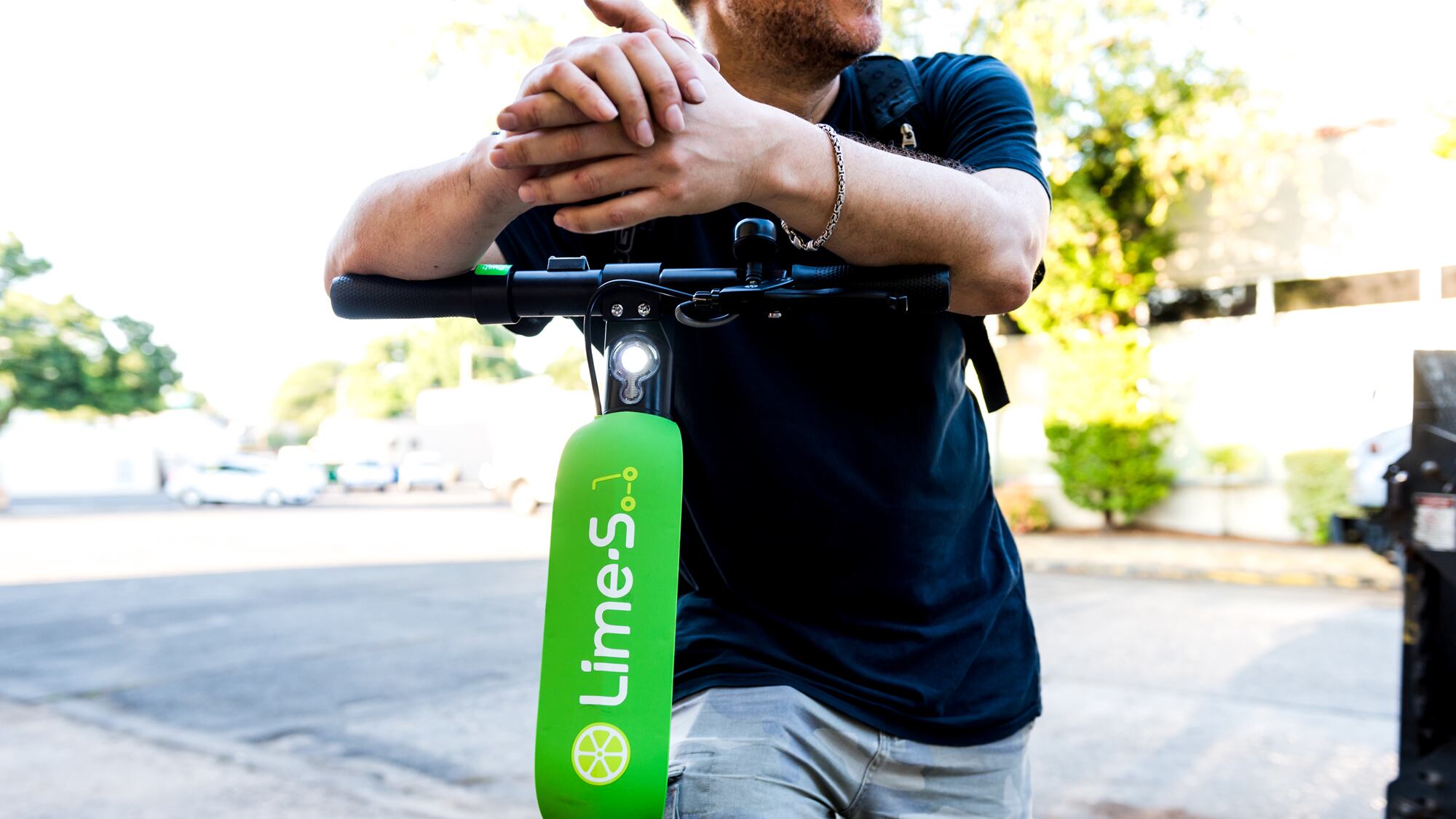Portland's newest California transplants are named Bird, Lime and Skip. City officials are watching them closely.
Last week, two Silicon Valley startups—Bird and Lime—each dropped off 400 new dockless electronic scooters in Portland.
Along with Skip—which has yet to deploy any rides—the companies are the first to be awarded permits in the city's four-month pilot program. Until Nov. 20, the city will be tracking ridership data to determine if scooters are a viable long-term transit solution in Portland.
In other places where scooters have been deployed, reactions have been mixed. The rides offer an affordable, environmentally low-impact and easy-to-use commute. However, because they are dockless, the scooters can also pose a nuisance on city sidewalks. Frustration over scooter clutter has led some cities, like San Francisco and Denver, to ban e-scooters altogether.
Portland's structured pilot program, City Commissioner Dan Saltzman announced in June, is an attempt to "report on and mitigate impacts" of scooters in the city. In short: City officials are hoping to avert the chaos other cities have suffered.
WW obtained copies of the permits Bird, Lime and Skip received from the city. Those documents, plus early reports from the startups, paint a picture of where e-scooters stand in Portland.
1
Number of scooters retrieved from the Willamette River so far, according to Lime mechanic Richard Moore
2,500
Total number of scooters allowed in Portland during the four-month pilot program
683
Number of scooters companies Bird and Lime are each allowed by the city to deploy
450
Number of scooters Skip is allowed by the city to deploy
684
Number of scooters still available to allot to competing scooter companies yet to arrive
100
Minimum number of scooters each individual company is required to deploy each day to East Portland (or 20 percent of its fleet if that number is less
$5,000
Pilot program permit fee the companies must pay City Hall
$250
Pilot program application fee the companies must pay to even be considered by City Hall
25¢
Charge per ride permitted scooter companies must pay the city each month to help offset the cost of overseeing the program
5
Distance in feet scooters must be parked from crosswalks, bike racks, fire hydrants, drinking fountains, public art, driveways, alleys, accessibility ramps, marked disabled parking spaces and taxi loading zones if companies want to avoid being penalized by the city
60
Number of minutes companies have to move scooters from these "non-emergency" zones before the city may issue a citation
15
Maximum speed in miles per hour the city will allow scooters to travel—though some riders report reaching speeds of nearly 20 mph
30
Distance in miles scooters can travel per charge

